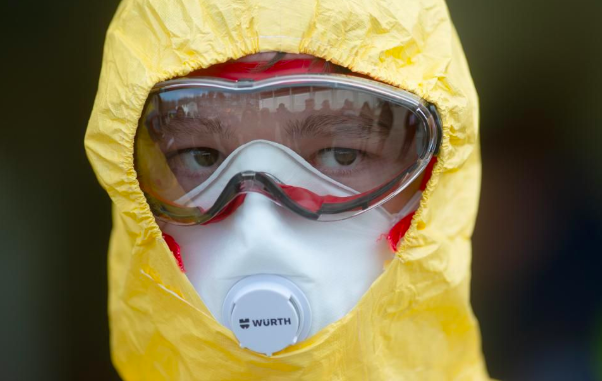
Plague, the most feared and devastatingly deadly disease has reemerged in Madagascar, the Democratic Republic of Congo and Peru. Fortunately, with the invention of antibiotics, this disease can be cured if caught early into the disease. Initially, the plague or “Black Death” is spread by the bite of a diseased flea. Once a human has contracted the bacteria, it can be spread human to human through contact with bodily fluids and is known by the scientific name: Yersinia pestis. This bacterium causes two forms of illness. According to the BBC, “the first form is called Bubonic Plague and has a 30-60% mortality rate, and the second form is called Pneumonic Plague, which affects the lungs and is almost always fatal unless treated with antibiotics.” (BBC, 2017)
Global political strife can be blamed for the lack of adequate prevention and treatment as well the spread of disease. The displacement of people and refugees continue to be one of the largest threats to populations. The polio emergence in Syria continue to demonstrate a causative relationship to the current Civil War occurring there since 2011. According the British Broadcasting Corporation (BBC), along with the World Health Organization (WHO), documented that 95% of the children were vaccinated against Polio. Fast forward 2 years and there are currently, “There are more than 100,000 children, all under age five, now at risk of polio in Deir Ezzor province alone, which has been caught in fierce battles between Syrian government forces and opposition fighters.” (BBC, 2013). It appears that nearly half of Syria’s medical professionals have left the country during this turmoil and refugee camps have been established in neighboring countries such as Jordan, Lebanon, Turkey, and Egypt. Please note that there is no cure for the polio virus currently, only immunizations against it.
The ensuing outbreak of cholera in Yemen has the markers of a political crisis where the health of the people suffers from the instability of their government leading to inequality and health disparities. According to the BBC, “The World Health Organization has recorded almost 5,500 suspected cases across the war-torn country.” (BBC, 2016) Cholera is a gastrointestinal illness brought on ingestion of contaminated food or water by the bacterium, Vibrio cholera. The resultant affect of cholera can yield a death in several hours due to dehydration from persistent diarrhea. If caught soon enough and rehydration is plausible, lives can be saved. Upstream logic implies safer water and food sources would directly impact this disease course and outbreak potential.
The WHO and the United Nations (UN) have been diligently working at reducing the impacts of health disparities across the globe by educating the masses and sending medical supplies and personnel to the “hot spots” of the world that need medical interventions. Perhaps, we as a people should concentrate our fighting to better Global Heath equality instead of warfare over policy, oil, land ownership, or religion. In 2019, the entire world can be touched with in a 22-hour flight, which means “big world, far away illness” logic no longer applies. We need to collaborate our efforts to keeping people and our environments well maintained and healthy as a whole.
References:
BBC. 2013. Syria polio outbreak ‘spreads’. October 25, 2013. Retrieved from:http://www.bbc.com/news/world-middle-east-24668437
BBC. 2017. Madagascar’s ‘worst plague outbreak’ in 50 years. November 14, 2017. Retrieved from:http://www.bbc.com/news/av/health-41973621/madagascar-s-worst-plague-outbreak-in-50-years
BBC. 2016. Yemen faces ‘significant’ cholera outbreak, says UN. Retrieved from:http://www.bbc.com/news/av/world-38067031/yemen-faces-significant-cholera-outbreak-says-un